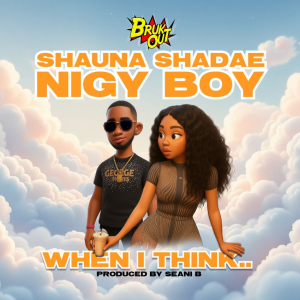
HOW KHALIA’S ‘MIRACLE’ TURNED SELF-REFLECTION INTO SUBLIME REGGAE
Before shaping the first lines of Miracle, Khalia reflected on what makes us human. The Jamaican-born, UK-raised reggae artist blends roots consciousness with crossover edges. Produced by Natural High Music, the team behind hits from Chronixx and Lila Iké, the track arrives via Ineffable Records with profound intention.
“This is NOT a gospel song. It’s a healing song,” Khalia declares. The rising star, known as the Princess of Jamaica, explores something deeper here. She invites listeners into raw self-reflection.
Khalia’s vision is powerful. She asks us to examine our reflections and recognise our inherent beauty.
“The fact that my brain moves so quickly… it all happened so seamlessly, as if it was designed to a T,” she explains. Consequently, this wonder permeates every note.
THIS IS NOT A GOSPEL SONG, IT’S A HEALING SONG
The single addresses those feeling adrift, particularly those navigating religious trauma. Additionally, Khalia connects personal struggles with universal questions about existence.
“When you look at yourself and you look at nature, you stop to see how really beautiful and how miraculous all of this is,” she reflects.
Blending roots consciousness with contemporary appeal, Khalia has become one of reggae’s most compelling voices. In fact, Miracle showcases her ability to merge authentic Jamaican heritage with global sensibilities.
The result is a transcendent anthem offering peace and solace to anyone questioning their place in this world.
ABOUT KHALIA

Khalia has emerged as one of reggae’s most distinctive voices, blending roots consciousness with crossover sensibilities. Born in Jamaica and raised in London, UK, she returned to Kingston in the mid-2010s, where a chance introduction to Grammy-winning producer Tony “CD” Kelly changed her trajectory.
Her breakthrough single Easy has over 1.7 million views, followed by Wild Fire and Love Is Real. Known for collaborations with Shaggy, Gyptian and Tanya Stephens, Khalia channels reggae’s heritage while addressing present-day struggles.
She moves fluidly between love songs and protest anthems, building a global, genre-defining catalogue while staying rooted in the stories that shaped her journey.


